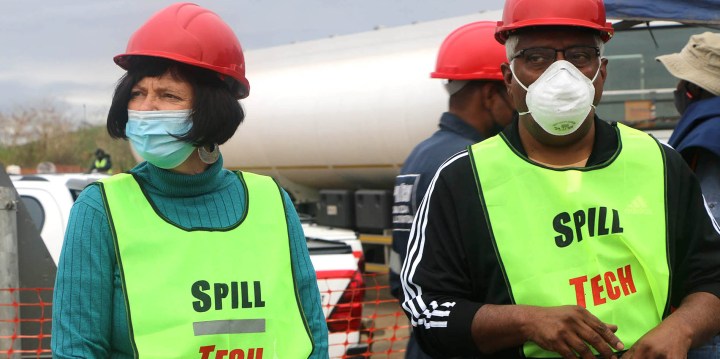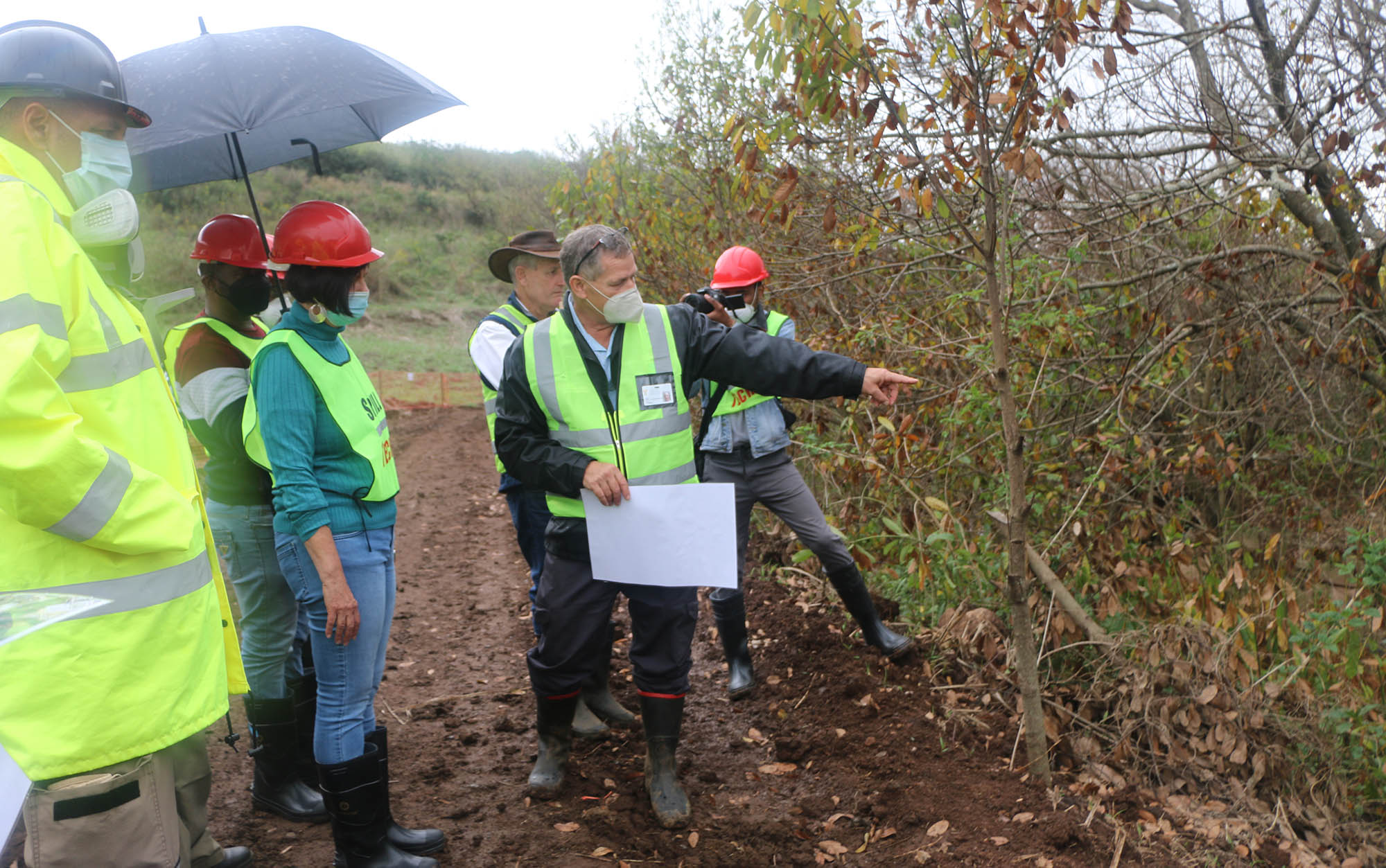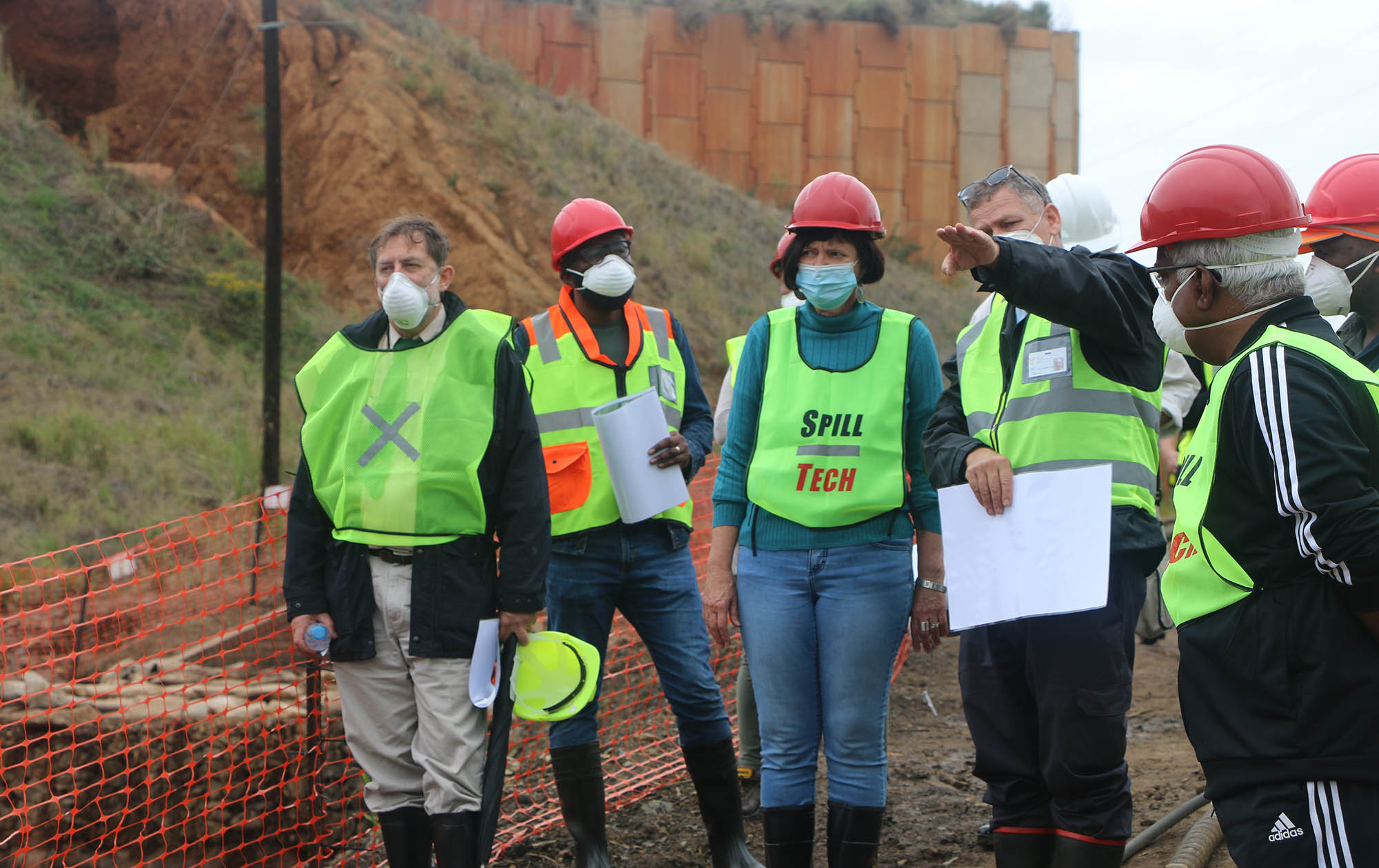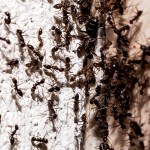OUR BURNING PLANET
Minister Barbara Creecy pledges clampdown on South Africa’s hidden toxic chemical storehouses after UPL disaster

Environment Minister Barbara Creecy has announced plans for a major clampdown on under-the-radar toxic chemical manufacturers and storage warehouses across South Africa in the wake of the UPL toxic smoke inferno in Durban.
Seventy-three days after dense clouds of poisonous chemicals billowed from a newly opened – but “unlawful”– chemical warehouse operated by an India-based agrochemical multinational, the government has announced plans for Green Scorpions environmental inspectors to conduct compliance and enforcement raids nationwide on facilities that make or store toxic chemicals.
This would entail “a baseline compliance profile of the entire agrochemical manufacturing sector and the inclusion of this sector into the national environmental compliance and enforcement activities”.
Releasing the preliminary findings of an intergovernmental investigation into the aftermath of an arson attack on the 14,000m³ UPL farm poisons warehouse in Cornubia, northern Durban, senior officials also spoke about plans to start monitoring the potentially harmful long-term health impacts of the airborne pollution on thousands of people – by collecting blood, urine and other biological samples from those exposed to the shifting clouds of toxic fumes for nearly 12 days.
This would include testing for dioxins (a highly toxic family of chemical compounds that can be formed during the burning process of chlorine and pesticide compounds) and which have been linked in international medical studies to significant human health impacts.
Creecy characterised the aftermath of the UPL arson attack as one of South Africa’s “most serious environmental catastrophe[s] in recent times” and said the investigation committee had recommended the establishment of a national “rapid response team” to deal with similar environmental disasters in future.
Significantly, the damning report also declares, unequivocally, that UPL was operating unlawfully, having failed to obtain several mandatory approvals from government regulators which might have resulted in prior safeguards being put into place to avoid or ameliorate the extensive pollution of soil, water, swimming beaches and the potentially harmful impacts on people exposed to toxic fumes.
There were also indications from Creecy that the criminal investigation charges laid against UPL by the government could be extended to include landowners and leasing companies such as Tongaat Hulett and Fortress Properties. Tongaat Hulett (together with the eThekwini municipality) was the joint developer of the Cornubia mixed-use development that included residential property, retail and “light-industrial” developments, while Fortress was involved in the leasing of the property to UPL (apparently with no prior environmental authorisation or hazardous risk assessment).
Regarding the closure of chemically-contaminated beaches north of Durban, Creecy confirmed that the government had received a report from UPL’s specialist consultants recommending that most beaches be reopened – but the government was not prepared to do so until this report was peer-reviewed by independent toxicology experts in the UK and the US Environmental Protection Agency.
The results of this peer review were expected in the next 10 days, but until then, Creecy said she was not prepared to take responsibility for lifting the beach ban, especially with the onset of summer rains that could release further toxins into the sea from the heavily-contaminated uMhlanga River and estuary.

Minister of Forestry, Fisheries and Environmental Affairs Barbara Creecy characterised the aftermath of the UPL arson attack as one of South Africa’s ‘most serious environmental catastrophe[s] in recent times’. (Photo: Supplied)
However, said Creecy, “I don’t want to be the one who says it’s safe [to reopen beaches] and your child digs up a [small pile of poison] in the beach sand, or your dog eats something… and there is a tragedy.” She preferred to be cautious before giving an all-clear.
The government’s preliminary report also includes damning findings against UPL – which claims to be the fifth-largest agrochemicals group in the world.
UPL, for its part, played the victim card on Sunday. In a media statement the company said it was “deeply disappointed” that Creecy had released the preliminary findings “without any prior discussion with the company” and that this appeared to have been “a deliberate strategy to deny UPL sufficient time within which to enforce its rights and ultimately to prejudice its rights”.
“UPL does not admit any non-compliance with the law, as alleged in the preliminary report.”
Creecy, however, said she hoped that “those responsible, directly or indirectly, own up and take responsibility”, also noting that she was quite sure that “UPL will issue a report saying they were in compliance”.
At a separate meeting with community representatives in Umhlanga on October 3, KZN Parliament member Heinz de Boer called for UPL to establish a R100-million trust fund for those affected by the poisonous smoke, the tourism sector and other stakeholders to claim against.
“We also hope that Tongaat Hulett and Fortress take a lesson out of this,” along with government officials responsible for presidential fast-track development schemes similar to the Cornubia development, said De Boer.
In her official statement on Sunday, Creecy said: “Empirical evidence shows that an entire ecosystem, which includes the oHlanga tributary, the uMhlanga estuary, the beaches and the coastal environment, not only in the vicinity of the UPL, but for several kilometres to the north of the uMhlanga estuary mouth, has been seriously impacted and may take several years to recover from this incident. In the days following the fire, the air quality in the immediate facility was also affected.”
The impact on ecotourism in uMhlanga, and the reserve, would be felt for a considerable period of time, she said, adding that “the estuary is dead… there’s nothing living in the river any more”.
The minister said that the intergovernmental compliance report had evaluated the legal provisions relating to the duty to eliminate or limit further damage to the environment and the sanctions which such a duty may attract, “bearing in mind the liability of those individuals whose actions may have caused and/or further contributed to the widespread damage”.
“The findings indicate that UPL was not in possession of the requisite Environmental Authorisation prior to establishing its operations in Cornubia three months before the incident. The authorisation should have been obtained from the KwaZulu-Natal Department of Economic Development, Tourism and Environmental Affairs.
“In addition, UPL had not obtained a critical risk assessment or planning permission from the eThekwini Metropolitan Municipality, in terms of the Occupational Health and Safety Act (OHSA) and the relevant municipal by-laws.
“Had the UPL undertaken this process, it would in all probability have been defined as a Major Hazard Institution, considering the significant volumes and nature of the chemicals stored at this particular location. These assessments would have determined the emergency readiness of the facility in the face of a disaster such as a fire.”
While criminal charges had been laid against UPL for alleged non-compliance with environmental laws and regulations, “it is important to say that it’s not our role to make findings of guilt or innocence against UPL. These findings will be made by a court of law once the NDPP makes a decision to prosecute this matter.”
The recommendations were not limited to this particular incident and suggested the need for proactive measures to strengthen the regulation of this sector.
“This includes a recommendation for a baseline compliance profile of the entire agrochemical manufacturing sector and the inclusion of this sector into the national environmental compliance and enforcement activities. I will in the near future be meeting with my counterpart in the Department of Rural Development and Agriculture to discuss the implications of this recommendation for the sector she leads.”
The report also recommends an evaluation of the response of the authorities to the incident, with the aim of enhancing capabilities to respond to similar incidents in the future.

Minister of Forestry, Fisheries and Environmental Affairs Barbara Creecy says she understands the concerns of the tourism industry and subsistence-fishing communities over the loss of income and livelihoods. (Photo: Supplied)
Ideas currently on the table included the establishment of an interdepartmental rapid emergency response team to deal with a certain category of incidents and the establishment of a panel of intergovernmental specialists.
Almost 13,000 tonnes of contaminated solids and 23.4 million litres of contaminated liquids had been removed from the UPL site and surrounding environment and transported to a hazardous waste disposal site in Gauteng, with some contaminated material taken to a site in Stanger.
“To ensure that affected communities are fully briefed on all developments, we have developed draft terms of reference, to establish the multistakeholder forum in line with the recommendation of the Portfolio Committee during its visit to the site in August.”
This forum would “ensure meaningful engagement between authorities and the public, and act as a conduit for the dissemination of information to communities affected by this incident”.
“In conclusion, I would like to point out that we remain in an ‘emergency situation’ in this area as a result of the fire event and spill. Accordingly, I will ensure that the national department continues to provide critical specialist support to the Joint Operational Centre. The national Green Scorpions will also continue to lead the criminal investigation that was initiated and work closely with the other entities involved in this investigation.
“The danger has not yet passed. But, in time, with enough remedial work and attention, we hope the environment will recover and those responsible for this incident, directly and indirectly, will have to own up to, and take responsibility for their actions.”
UPL said in a press statement it was “deeply disappointed by Minister Creecy’s release of a preliminary report into the Cornubia warehouse attack… without any prior discussion with the company”.
“UPL has always been fully committed to cooperation with all three spheres of government to help manage the after-effects of the violent attack on its Cornubia warehouse in July of this year. It has had extensive correspondence with government in this regard, and has always acted in good faith in its interactions.
“The preliminary report was only sent to UPL late last night, a matter of mere hours before its release. As a result, UPL has simply had insufficient time to properly consider the preliminary report.
“What is nevertheless clear is that it fails to address what is at the heart of the issue – namely, that the fires, which led to the pollution, were caused by rioters involved in the civil unrest in Kwazulu-Natal at the time and which the emergency services were unable to contain.
“UPL along with many other businesses were left to fend for themselves in the face of unprecedented and unforeseeable levels of violence and criminality. This central fact seems to be conveniently ignored by Minister Creecy’s department.
“At first glance, the circulation of this preliminary report at extremely late notice to UPL appears to have been a deliberate strategy to deny UPL sufficient time within which to enforce its rights and ultimately to prejudice its rights. UPL does not admit any non-compliance with the law, as alleged in the preliminary report.”
UPL had “desisted from highlighting the many inadequacies of government’s response to this matter”.
“UPL will in due course respond to allegations of non-compliance in the appropriate forums. For now, it intends to get on with the clean-up and rehabilitation. It has had extensive interactions with the authorities in the past, and trusts that the minister’s current visit and actions have not prejudiced that.” DM/OBP
[hearken id=”daily-maverick/8738″]





















 Become an Insider
Become an Insider
We need a system whereby neighbouring factories need to be expressly made aware of the risks. Imagine UPL near food factories – they’d all have shut down for weeks. Many landlords either don’t know or don’t care what happens in their premises. Ag, fertiliser and farming chemicals, sounds fine…
There are other UPL locations all around South Africa : what do those store?
“… transported to a hazardous waste disposal site in Gauteng…”
– How vary kind of them to ship the hazardous materials up to those people living in Gauteng.
Have said this is international disaster in a corrupt African Country. I am encouraged by the statement that the UPL’s specialist consultants report recommending that most beaches be reopened would not be considered until this report was peer-reviewed by independent toxicology experts in the UK and the US Environmental Protection Agency. It looks like the Environmental Ministry is in the spotlight internationally also with Eskom emissions, Karpowership and locally with suspect mining licence applications.
Well done Tony Carnie and DM for keeping the pressure on those responsible and for the feedback to Joe Public. Well done Barbara Creecy for taking up the battle and doing what is right by the people of KZN. Hopefully future environmental decisions are left in your capable hands for you to once again, make the right decision for the Environment and future generations of South Africans – particularly with regards to the Kapowerships – an expensive disaster waiting to happen!